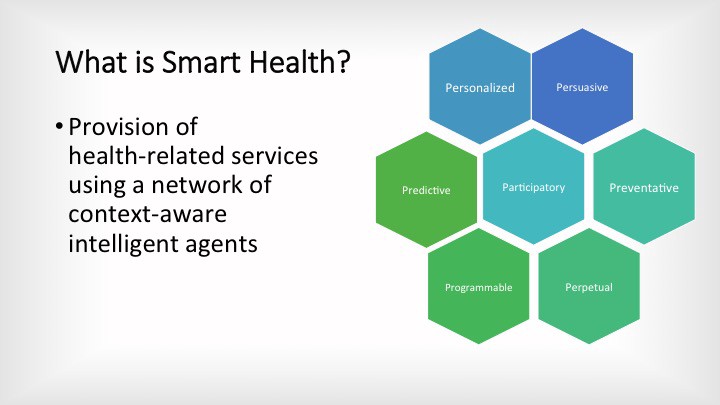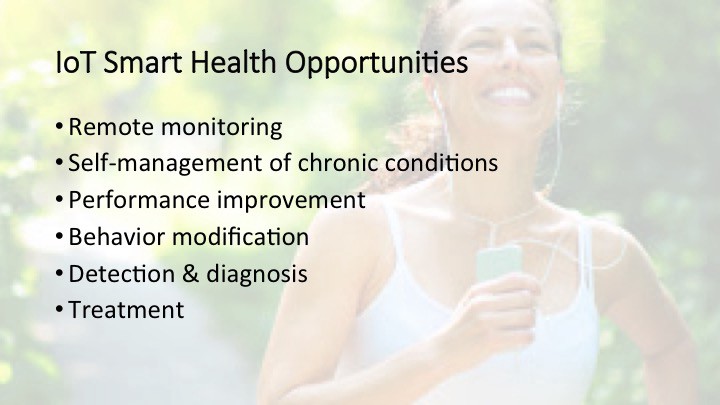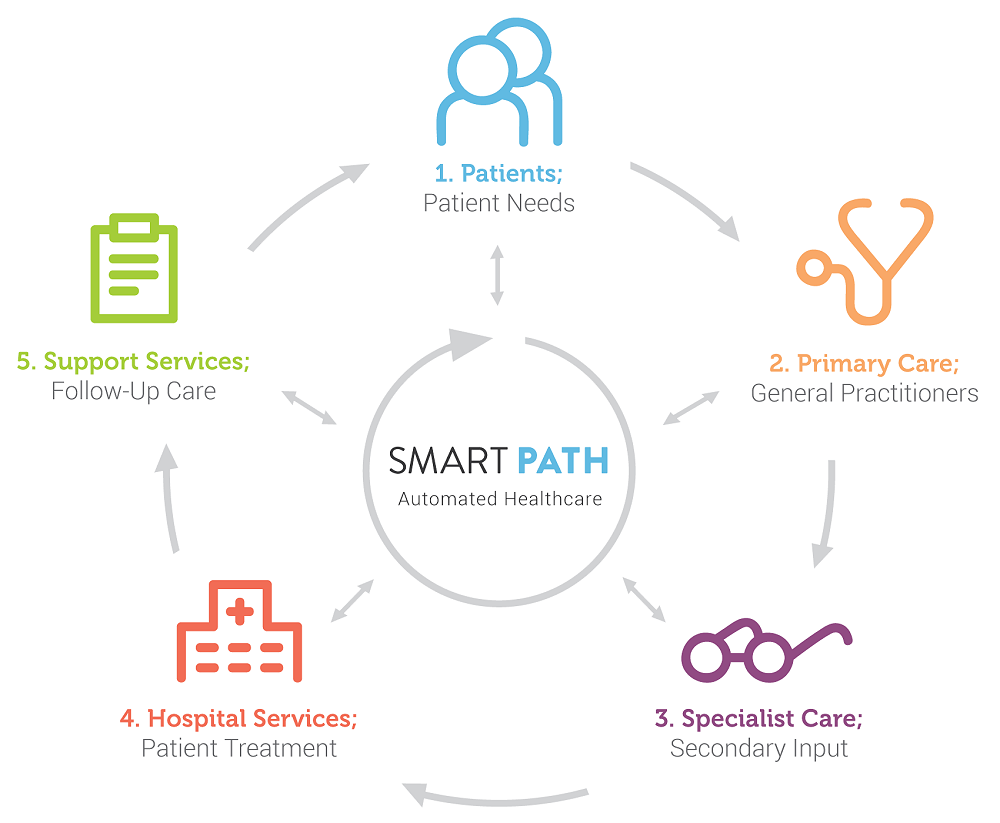
What is Smart Health?
Smart health systems provide health related services using a network — some kind of connection between intelligent agents. These intelligent agents could be computing devices, mobile phones, sensors, ANYK smart bands, surgical devices, devices that measure your blood chemistry, or devices that measure your brainwaves. Any of these things could be intelligent agents.The human actors — patients orhealth care providers for example — could be intelligent agents in this system. The sensors, devices, computers, applications, and human actors are all intelligent agents that might be connected in the smart health system.
What does Smart Health do?

n Remote monitoring
Measure a person’s heart rate or their blood pressure remotely. The doctor, or a nurse or another health-care provider, can keep track of that and take action if necessary.
n Self-management of chronic conditions
help someone with chronic conditions, like diabetes or high blood pressure, measure their condition and manage that over time — to see if activities they’re taking are improving their condition, modifying their activities, and so on.
n Performance improvement
Athletes have used these kind of smart health systems for a long time to try to improve performance. In addition to athletes, we also can see performance measurement in rehabilitation services. So sometimes it’s not just “can I run faster” or “can I have my heart rate come back to to my resting rate faster?” but it might just be “can I dress myself?” or “can I get enough movement to feed myself?”
n Behavior modification
Behavior modification is another thing we do with ANYK smart health care systems. If we want to stop smoking, to start exercising more frequently, to reduce our stress level, or want to get more sleep — all these kinds of things can be supported by these devices. And many of us do that on a regular basis.
n Detection & diagnosis
Detection and diagnosis. We know that doctors might use artificial intelligence systems to help them with a diagnosis, ANYK smart health care data can be used to help diagnose a patient and determine the best treatment. The doctor can see this data data where his heart rate had been so they could see when the problem started and how long it lasted. And based on that, they decided which treatment was appropriate.
